Cylinder Head
The piston, an integral component within the internal combustion engine, plays a pivotal role in the dynamic orchestration of the combustion process.
Crafted with precision, this essential part seamlessly integrates with the cylinder head, forming the upper boundary of the combustion chamber. Designed to operate in conjunction with the spark plug sockets and injector holders, the piston ensures optimal efficiency in fuel ignition.
The cylinder head, a key player in this symphony, houses the intake and exhaust ducts, complemented by meticulously engineered valves, guides, and return springs.
Constructed for durability and performance, our pistons stand as paragons of engineering excellence.
Engineered to endure the rigorous demands of combustion, they exhibit exceptional heat resistance and structural integrity. The meticulous design of our pistons facilitates seamless coordination with the cylinder head, fostering efficient energy conversion.
Elevate your engine’s performance with our premium pistons, where precision meets power. Trust in our commitment to quality, as we redefine reliability and excellence in every revolution.
Compare
Cylinder Head
The cylinder head is a crucial component of an internal combustion engine, playing a vital role in engine performance, efficiency, and reliability. It is located at the top of the engine block and serves as a cover for the combustion chamber, where air and fuel are mixed and ignited. The design and functionality of the cylinder head are integral to the engine’s overall operation and performance.
Material and Construction
The cylinder head is typically made from high-strength materials such as cast iron or aluminum alloys. These materials are chosen for their durability, heat resistance, and ability to withstand the high pressures and temperatures generated within the engine. Aluminum alloys, in particular, are favored for their lighter weight and excellent thermal conductivity, which helps in managing engine temperatures and improving efficiency. The construction of the cylinder head involves precision machining to ensure a perfect fit and alignment with the engine block, allowing for optimal sealing and performance.
Design and Functionality
The design is complex and involves several critical features:
- Combustion Chambers: contains combustion chambers where air and fuel are mixed and ignited. The design of these chambers affects the engine’s power output, fuel efficiency, and emissions.
- Valves and Valve Train: houses the intake and exhaust valves, which control the flow of air and exhaust gases into and out of the combustion chambers. The valve train, including components like rocker arms, camshafts, and lifters, is integrated into the cylinder head and plays a key role in the timing and operation of the valves.
- Ports: Intake and exhaust ports are integrated into the, facilitating the flow of air and exhaust gases. The design of these ports influences engine breathing and performance.
- Cooling Passages: These include passages for the coolant to flow through, helping to manage engine temperatures and prevent overheating. This cooling system is crucial for maintaining optimal engine performance and longevity.
- Spark Plugs or Glow Plugs: In gasoline engines, include ports for spark plugs, which ignite the air-fuel mixture. In diesel engines, glow plugs are used to preheat the combustion chamber for ignition.
Performance and Efficiency
It role in engine performance and efficiency. Its design impacts several aspects of engine operation:
- Power Output: The shape and size of the combustion chambers, as well as the configuration of the valves and ports, affect the engine’s power output. An optimized cylinder head design can enhance the engine’s power and acceleration.
- Fuel Efficiency: Efficient airflow through the intake and exhaust ports, as well as effective combustion chamber design, contribute to better fuel efficiency. A well-designed cylinder head helps ensure that the engine burns fuel more completely and efficiently.
- Emissions: The cylinder head’s design influences emissions control by facilitating better combustion and reducing the amount of unburned fuel and exhaust gases. Modern cylinder heads often include features to support compliance with emissions regulations.
Maintenance and Repair
Maintaining and repairing the crucial for engine performance and longevity. Common issues that may require attention include:
- Warping or Cracking: Overheating or excessive pressure can cause the cylinder head to warp or crack, leading to leaks or loss of compression. Regular maintenance and proper engine cooling can help prevent these issues.
- Gasket Leaks: The gasket, which seals the cylinder head to the engine block, can deteriorate over time and cause leaks. Replacing the gasket as needed is essential for maintaining a proper seal and preventing coolant or oil leaks.
- Valve and Valve Train Issues: Wear and tear on the valves and valve train components can affect engine performance. Regular inspection and timely replacement of worn parts are important for ensuring proper valve operation.
Advanced Engineering and Technologies
Modern often incorporate advanced engineering and technologies to enhance performance and efficiency:
- Variable Valve Timing (VVT): Some cylinder heads feature VVT technology, which adjusts the timing of the intake and exhaust valves to optimize engine performance across different speeds and conditions.
- Turbocharging: Cylinder heads designed for turbocharged engines may include features to support higher pressures and temperatures, enhancing power output and efficiency.
- Direct Injection: engines with direct fuel injection systems are designed to accommodate the unique requirements of this technology, which delivers fuel directly into the combustion chamber for improved efficiency and performance.
Conclusion
The cylinder head is a vital component of an internal combustion engine, significantly impacting its performance, efficiency, and reliability. With its advanced materials, complex design, and integration of critical engine components, the cylinder head plays a key role in the engine’s operation. Proper maintenance and understanding of the cylinder head’s functions are essential for ensuring optimal engine performance and longevity. Whether in a high-performance sports car or a daily commuter vehicle, the cylinder head contributes to the engine’s power, efficiency, and overall driving experience.
Based on 0 reviews
Be the first to review “Cylinder Head” Cancel reply
Related products
-
Engine
Starter
0 out of 5(0)The starter is a vital component in your vehicle’s ignition system, ensuring a smooth and efficient engine start-up.
This compact motor, powered by a reliable battery, plays a crucial role in initiating your car’s operation under its own power. A well-functioning starter is essential for a seamless ignition process.
At the heart of the starter system is the starter relay, strategically positioned between the battery and the starter motor.
This relay efficiently transmits power, ensuring a reliable connection that is integral to the engine’s initiation.
Without a properly operating starter relay and motor, your vehicle may require a tow, leaving you stranded.
Whether you’re considering a replacement or an upgrade, our range of starters, including car starters, remote car starters, and remote start options, guarantees high performance and durability.
Trust in our starters to provide the reliability your vehicle deserves, ensuring a prompt and efficient start every time. Elevate your driving experience with our cutting-edge starter solutions.
SKU: n/a -
Engine
New AD AutoParts Front Engine Mount For Pilot Ridegeline Acura TL CL MDX
0 out of 5(0)Introducing the New AD AutoParts Front Engine Mount for Pilot Ridgeline Acura TL CL MDX.
Motor mounts play a pivotal role in ensuring a vehicle’s smooth operation by preventing engine movement during use.
Similar to tires and floor mats, motor mounts can wear out over time. Recognizing the importance of a reliable motor mount, our product is meticulously crafted with high-quality composite metal and molded rubber.
This construction effectively controls heavy engine vibrations, safeguarding your vehicle’s systems from potential damage caused by excessive movements.
Designed to surpass the standards of original motor mounts, the New AD AutoParts Front Engine Mount for Pilot Ridgeline Acura TL CL MDX provides exceptional form, fit, and function.
If you observe cracked or deteriorating rubber in your current motor mount, it’s time to consider a replacement.
Our motor mount not only minimizes engine vibration in the compartment but also offers additional support to your engine and transmission while reducing overall engine noise.
Choose the assurance of ENA for a smooth and stable driving experience.
SKU: n/a -
Engine
Alternator
0 out of 5(0)The High Output Alternator stands as a vital component beneath the hood, resembling a compact cylindrical generator securely bolted to the engine.
Serving as a cornerstone within a vehicle’s electric charging system, the alternator collaborates with the battery and voltage regulator. Its primary role is to furnish electrical power for storage in the vehicle’s battery.
Operating seamlessly, it harnesses mechanical power from a drive or serpentine belt linked to the engine’s crankshaft pulley, skillfully transforming this mechanical force into a reliable source of electricity.
The alternator’s prowess lies not only in its functionality but also in its cost-effectiveness, embodying efficiency without compromising on quality.
Experience optimal performance and durability with our cutting-edge alternator, ensuring a dependable power supply for your vehicle.
SKU: n/a -
Engine
Carburetor
0 out of 5(0)A Carburetor is an essential component that precisely regulates the fuel and air mixture entering the engine cylinder, ensuring optimal combustion in spark-ignition engines.
This device features a storage chamber for liquid fuel, a choke for initial startup, an idling jet for slow-running conditions, a main jet for regular operation, a venturi-shaped air-flow restriction for controlled airflow, and an accelerator pump for swift throttle response.
Within the carburetor, the air bleeder serves as a crucial element, facilitating the meticulous mixing of fuel and air to generate a finely atomized mist. This results in a smooth and efficient combustion process.
The carburetor’s design, incorporating these key components, enables it to cater to the specific needs of the engine, promoting optimal performance and fuel efficiency.
Whether it’s for daily commuting or high-performance applications, the carburetor plays a pivotal role in ensuring the seamless operation of spark-ignition engines.
Trust in the precision engineering of our carburetor and throttle body systems to deliver consistent and reliable performance across various automotive brands.
SKU: n/a -
Engine
Engine Oil Pan
0 out of 5(0)The engine oil pan is a vital component seamlessly integrated into your vehicle’s engine system.
Precision-engineered and crafted, it securely attaches to the engine’s underside using robust bolts, serving as the primary reservoir for oil.
As the heartbeat of your engine, this oil pan facilitates the efficient circulation of oil, ensuring optimal lubrication, cleanliness, and cooling of crucial moving parts.
During an oil change, the oil pan plays a pivotal role in the extraction and replenishment of engine oil, promoting longevity and peak performance.
Designed for compatibility with a variety of engine types, our oil pan exemplifies durability and reliability across all brands.
Engineered to exact standards, it enhances overall engine efficiency by reducing friction between components, mitigating heat generation, and promoting a cleaner, cooler engine environment.
Trust in the quality and versatility of our oil pan, a cornerstone of engine maintenance, whether you prefer conventional or synthetic oil.
Elevate your driving experience with a product designed to exceed expectations.
SKU: n/a




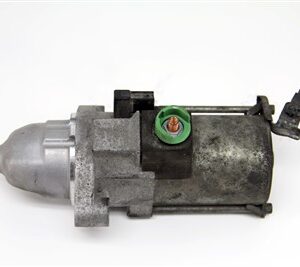
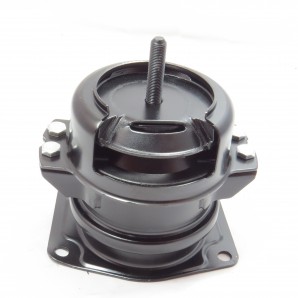
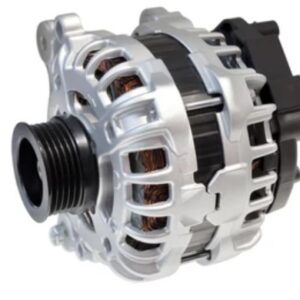
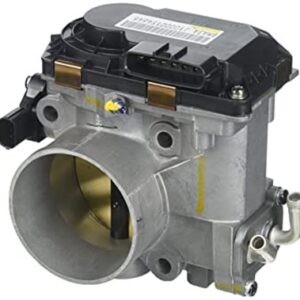
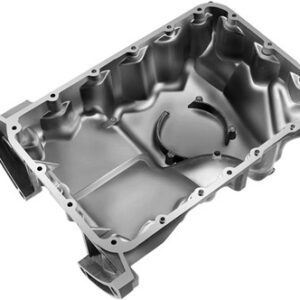
There are no reviews yet.